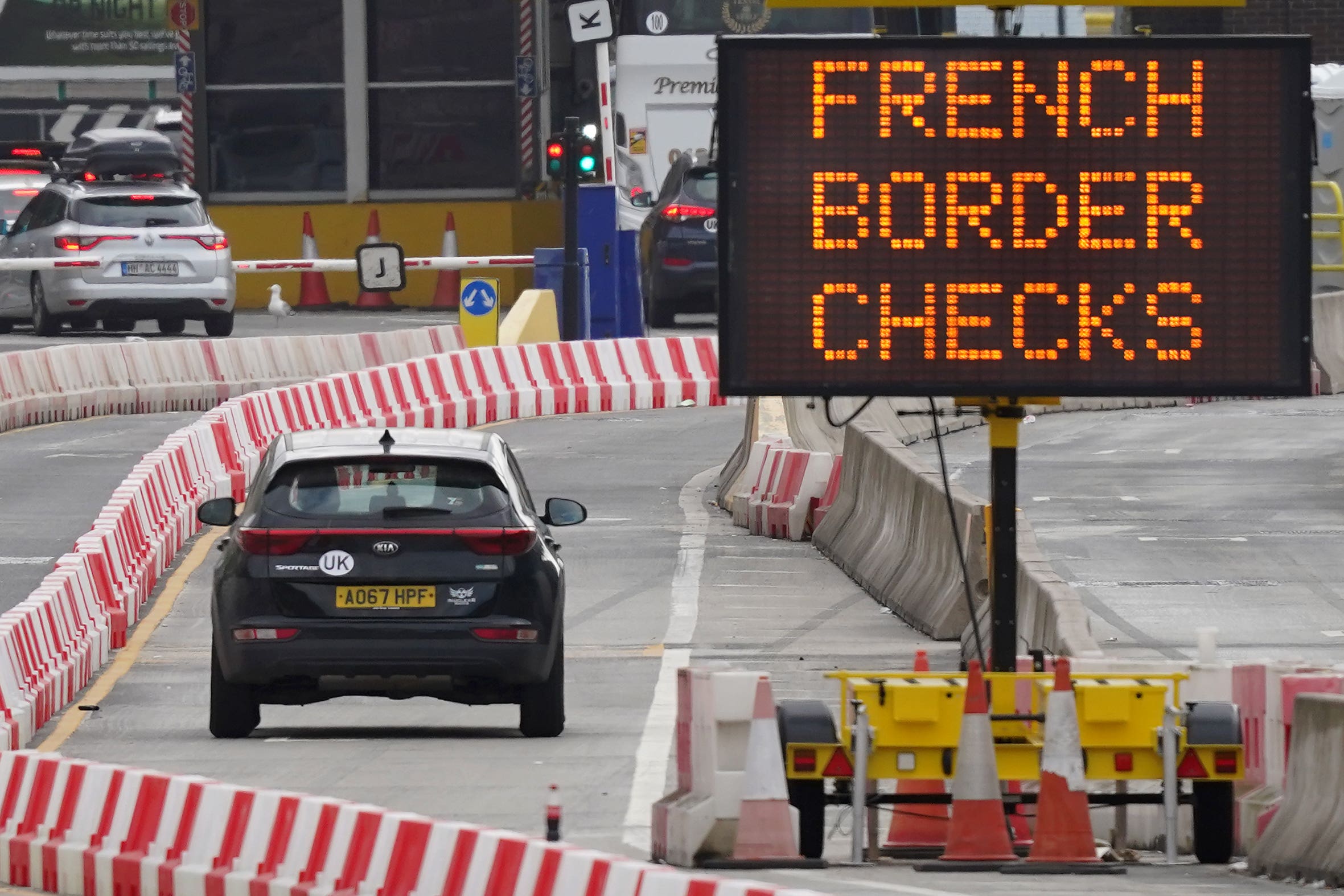Trials for new EU border system which could cause ‘continued disruption’
Port of Dover officials have been invited to Calais to view tests of technology for the EU’s incoming Entry/Exit System

Trials of technology for a new border system feared to cause major delays for UK holidaymakers will take place this month.
Doug Bannister, chief executive of the Port of Dover, Kent told MPs he has been invited to Calais, France to view tests for the European Union’s incoming Entry/Exit System (EES).
He said the port has not been given any details of the scheme’s rules but expressed concern it could cause “significant and continued disruption for a very long time”.
It's going to have a higher impact on families
EES is due to be introduced in May 2023.
It is expected to involve travellers from non-EU countries such the UK having their fingerprints scanned and a photograph taken to register them onto a database the first time they enter a member state.
Asked by the Commons’ Transport Select Committee what passengers will need to do, Mr Bannister replied: “There is a lot of ongoing dialogue taking place between officials in our Government and French officials.
“There is going to be a trial of some new technology which we’ve been invited along to witness over in Calais in the next couple of weeks.
“So I know activity is ongoing but, as I sit in front of the panel today, we don’t have that answer.”
When EES is implemented, it will have an effect at the Port of Dover as outbound travellers pass through French border checks before boarding ferries.
Mr Bannister said: “It’s going to have a higher impact on families wishing to go abroad next summer.”
He told the committee “we haven’t seen what the process is” but expressed concerns that the time it takes to process a car from around 90 seconds to 10 minutes.
We need to see what the technology is going to be, we need a sufficient amount of time to trial, test and train to use that technology before implementation
He said: “We’ve heard that there could be some technology that is sort of an iPad with handholds to register the fingerprints.
“But we haven’t trialled it. How do you pass that around a car? What happens if you’ve got a child asleep in the backseat?
“What if it’s a dark stormy night and the lighting is inappropriate? We haven’t tested all of that.”
He added: “We need to know what the rules of the game are.
“We need to see what the technology is going to be, we need a sufficient amount of time to trial, test and train to use that technology before implementation.”
Tens of thousands of families saw their holiday plans ruined in July due to miles of gridlocked traffic around the Kent port.
This was blamed on a lack of French border police.
Asked what steps have been taken to avoid a chaos returning, Mr Bannister told MPs: “What we anticipate is that we would have an earlier warning if they are unable to man to appropriate resource levels.
“Then we can enact any of the contingency plans on our side to try and do the traffic management.”
Bookmark popover
Removed from bookmarks